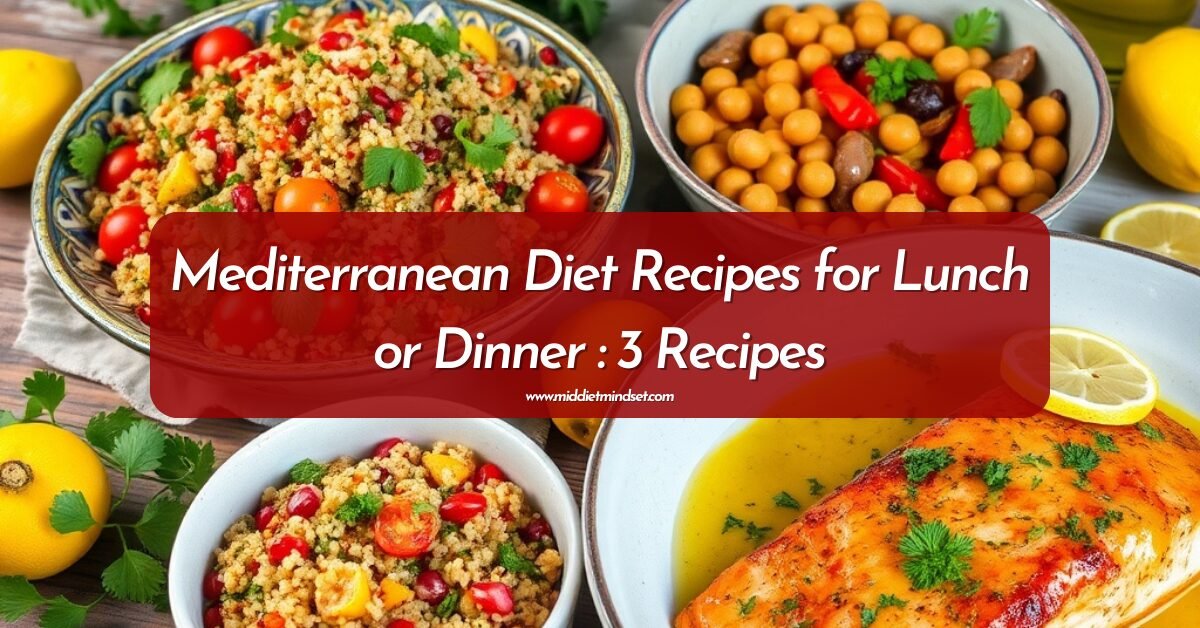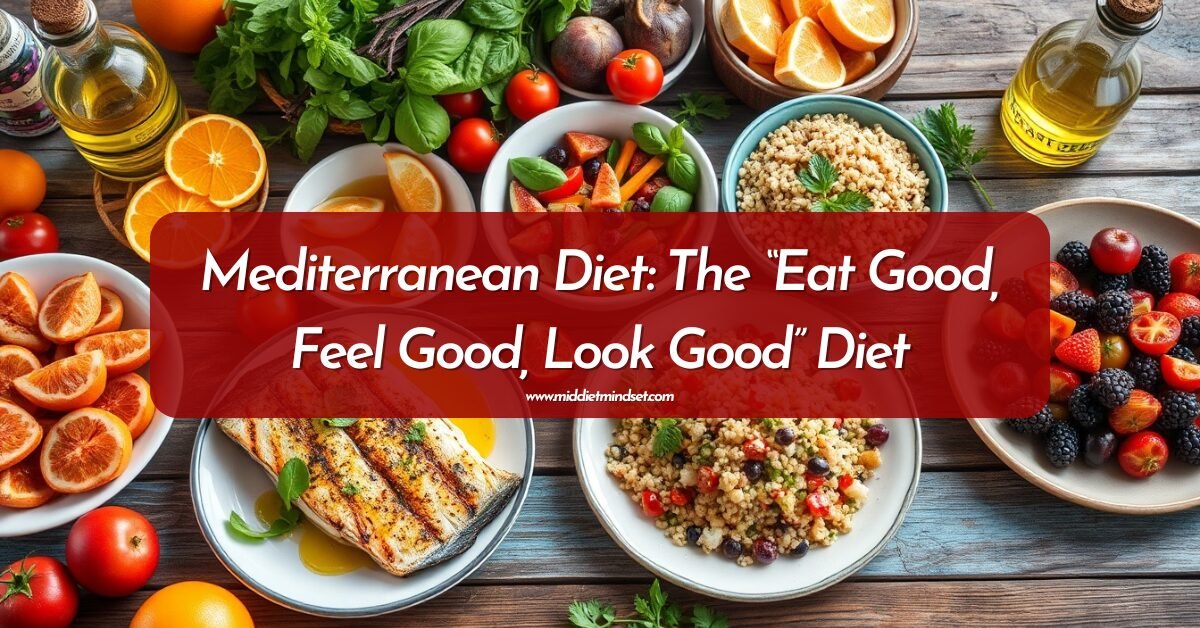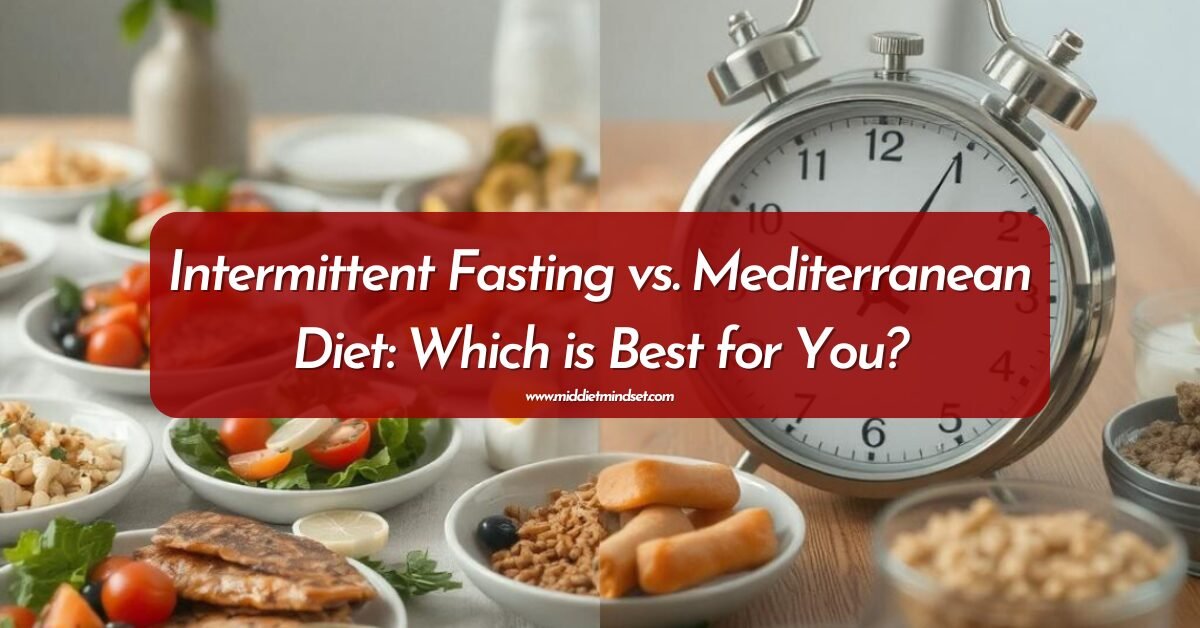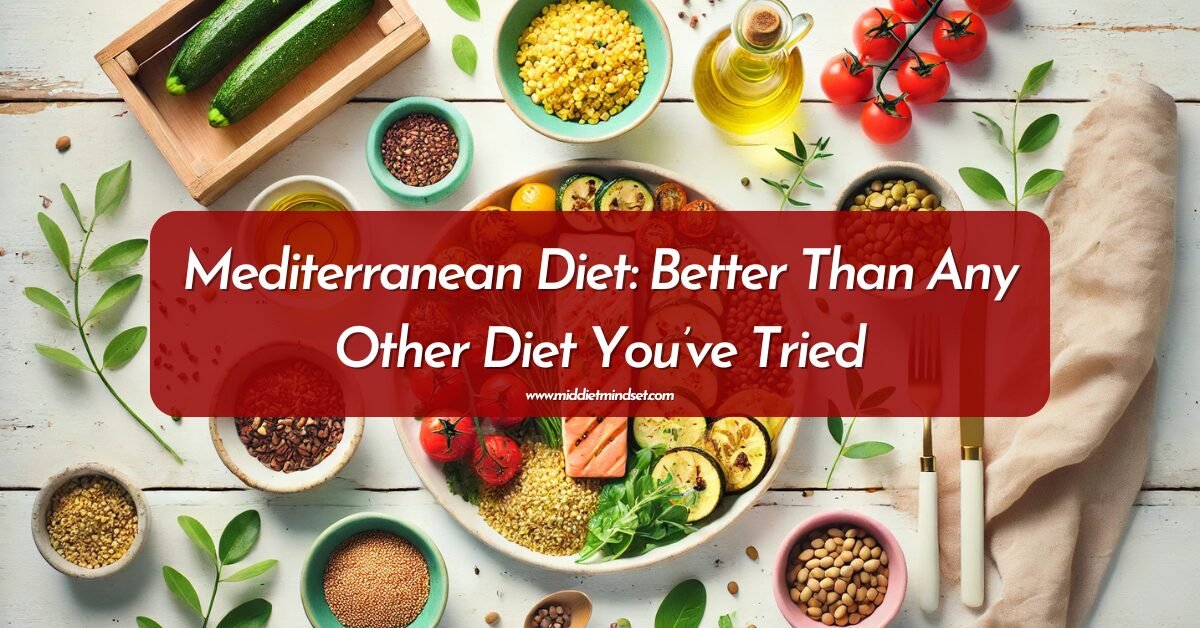Table of Contents
ToggleLet’s face it, we’ve all been bombarded with fad diets promising quick and easy weight loss. I remember trying the cabbage soup diet in college – a week of watery soup and nothing else. It was miserable, and the weight came right back the moment I ate a normal meal again. The truth is, the global obesity epidemic isn’t going to be solved by crash diets. What we need is a sustainable approach, a way of eating that’s not only healthy but also enjoyable and easy to stick with. That’s where the Mediterranean Diet (MedDiet) comes in.
Originating from the sunny shores of Greece, Italy, and Spain, the Mediterranean Diet isn’t about deprivation. It’s a lifestyle, a celebration of fresh, flavorful food and a way of living that promotes health and well-being. This article will explore why the Mediterranean Diet, backed by extensive scientific research, offers a truly sustainable path to weight loss by promoting healthy eating habits and an overall balanced lifestyle.
The Core Principles of the Mediterranean Diet
The beauty of the Mediterranean Diet lies in its simplicity and focus on whole, unprocessed foods. Here are the key principles:
Embrace the Power of Plants
Think vibrant salads, hearty vegetable soups, and delicious bowls of lentil stew. The Mediterranean Diet emphasizes plant-based foods as the foundation of your meals.
Fruits and Vegetables

Load up on colourful fruits and vegetables – the more variety, the better! Aim for at least five servings a day. I love starting my day with a smoothie packed with spinach, berries, and bananas.
Whole Grains

Opt for whole-grain bread, pasta, brown rice, and quinoa over their refined counterparts. They provide sustained energy and are rich in fiber.
Legumes

Beans, lentils, and chickpeas are nutritional powerhouses, packed with fiber and protein. They’re incredibly versatile and can be added to salads, soups, stews, or even enjoyed as a dip.
Healthy Fats are Your Friend
Forget the low-fat craze of the past. The Mediterranean Diet embraces healthy fats, which are essential for satiety, brain health, and nutrient absorption.
Olive Oil

Extra virgin olive oil is the cornerstone. Use it for cooking, drizzling over salads, and even dipping bread. My grandmother swore by olive oil, using it for everything from cooking to skincare!
Nuts and Seeds

Almonds, walnuts, chia seeds, and flaxseeds are packed with healthy fats, protein, and fiber. They make a great snack or addition to yogurt and salads.
Fatty Fish

Salmon, mackerel, sardines, and tuna are rich in omega-3 fatty acids, which have been linked to numerous health benefits, including heart health and reduced inflammation. Aim for at least two servings of fatty fish per week.
Moderate Protein Intake in the Mediterranean Diet
Protein is important, but it doesn’t need to be the star of every meal.
Lean Poultry and Fish

Chicken, turkey, and fish are excellent sources of lean protein. Grill them, bake them, or incorporate them into stews and salads.
Occasional Red Meat

Red meat can be enjoyed in moderation, ideally choosing lean cuts and limiting consumption to a few times a month.
Limit the Unwanted
While the Mediterranean Diet isn’t about strict restrictions, it does encourage limiting certain foods.
Processed Foods

Packaged snacks, sugary cereals, and ready-made meals are often high in unhealthy fats, sugar, and sodium. Opt for whole, unprocessed foods whenever possible.
Added Sugar

Cut back on sugary drinks, desserts, and processed foods with added sugar. Satisfy your sweet tooth with fresh fruit or a small piece of dark chocolate.
Saturated and Trans Fats

Limit intake of red meat, butter, and processed foods high in saturated and trans fats.
Get Moving
The Mediterranean Diet isn’t just about what you eat; it’s about how you live.
Regular Physical Activity

Aim for at least 30 minutes of moderate-intensity exercise most days of the week. Find activities you enjoy, whether it’s walking, swimming, dancing, or gardening.
Incorporate Movement into Daily Life

Take the stairs instead of the elevator, walk or bike to work if possible, and find opportunities to be active throughout the day.
Mindful Eating and Social Connection
Food is meant to be enjoyed!
Savor Your Meals

Slow down, pay attention to the flavours and textures of your food, and eat without distractions.
Share Meals with Loved Ones

Eating together is a cornerstone. It fosters connection and promotes a healthy relationship with food.
Science-Backed Benefits of the Mediterranean Diet for Weight Loss
The Mediterranean Diet isn’t just a feel-good approach to eating; it’s backed by a wealth of scientific research demonstrating its effectiveness for weight loss and overall health.
Satiety and Reduced Caloric Intake
The Mediterranean Diet’s emphasis on fiber-rich foods like fruits, vegetables, legumes, and whole grains helps you feel fuller for longer. This naturally leads to a reduction in caloric intake without feeling deprived. Healthy fats also contribute to satiety and help regulate appetite hormones.
Improved Metabolic Health
Studies suggest that MedDiet may offer benefits for blood sugar regulation and insulin sensitivity, factors that play a role in metabolic health, including weight management and the prevention of type 2 diabetes. The Mediterranean Diet’s emphasis on whole, unprocessed foods can contribute to stabilizing blood sugar levels and potentially preventing the rapid fluctuations in energy that might lead to increased appetite and overeating.
Reduced Inflammation and the Mediterranean Diet
Chronic inflammation is a major contributor to weight gain and various health problems. MedDiet, rich in antioxidants and anti-inflammatory compounds found in fruits, vegetables, olive oil, and fatty fish, helps combat inflammation and promotes a healthier body weight.
To learn more about how the Mediterranean diet can be a powerful tool in managing inflammation and supporting weight loss, check out the article: Inflammation with the Mediterranean Diet: The Key to Weight Loss? It provides insights into how this dietary approach can benefit your overall health and weight management.
Gut Microbiome Support
The Mediterranean Diet’s abundance of plant-based foods nourishes the beneficial bacteria in your gut. A healthy gut microbiome plays a vital role in digestion, nutrient absorption, and even weight regulation. Studies have shown that individuals following a MedDiet have a more diverse and beneficial gut microbiome compared to those consuming a typical Western diet.
Supporting Studies on the Effectiveness of the Mediterranean Diet
Numerous studies have confirmed the Mediterranean Diet’s effectiveness in promoting weight loss and improving health markers. A meta-analysis of 16 randomized controlled trials published in the journal “Metabolic Syndrome and Related Disorders” found that MedDiet was more effective than any other diets for weight loss and reducing waist circumference. Another review published in the “British Journal of Pharmacology” showed that the Mediterranean Diet significantly reduced the risk of heart disease, stroke, type 2 diabetes, and certain types of cancer.
Conclusion: Embrace the Mediterranean Diet for a Healthier, Happier You
The Mediterranean Diet offers a sustainable and enjoyable path to weight loss and a healthier life. It’s not about strict rules and deprivation but rather about embracing a lifestyle that prioritizes whole, unprocessed foods, regular physical activity, and mindful eating. The Mediterranean Diet is a holistic approach that nourishes your body and mind, leading to lasting weight management and improved overall well-being.
If you’re tired of yo-yo dieting and searching for a way to achieve a healthy weight that you can maintain for the long term, I encourage you to give the Mediterranean Diet a try. You might just discover that it’s not just a diet but a delicious and fulfilling way of life. Embrace the flavors, the lifestyle, and the science-backed benefits of the Mediterranean Diet – your body and mind will thank you!

Nour is a registered dietitian, nutrition researcher, and founder of MedDietMindset. With a passion for evidence-based nutrition, she specializes in Mediterranean diet strategies, PCOS management, and sustainable weight loss. Nour is dedicated to transforming complex scientific research into clear, actionable guidance to support healthier, long-lasting lifestyle changes. Through her blog, she empowers readers to build habits that prioritize well-being, balance, and vitality.








Pingback: MedDiet: The "Eat Good, Feel Good, Look Good" Diet – MedDiet Mindset